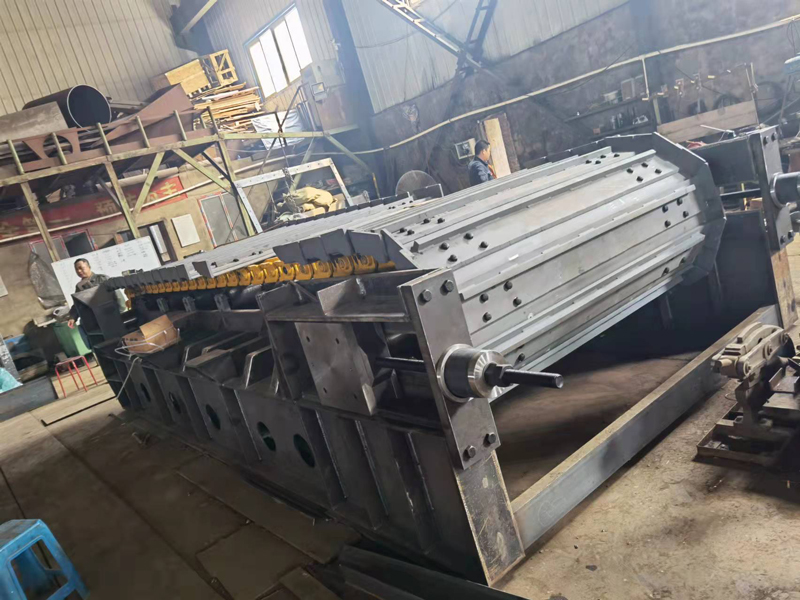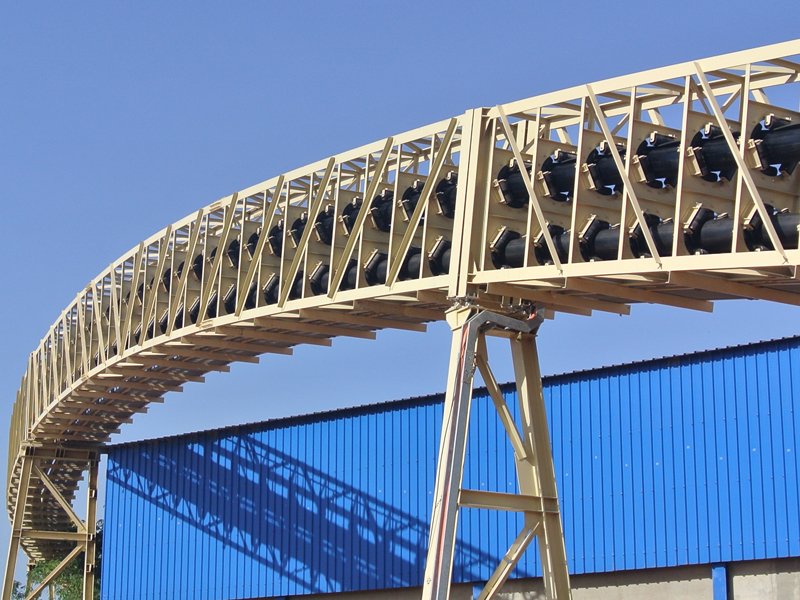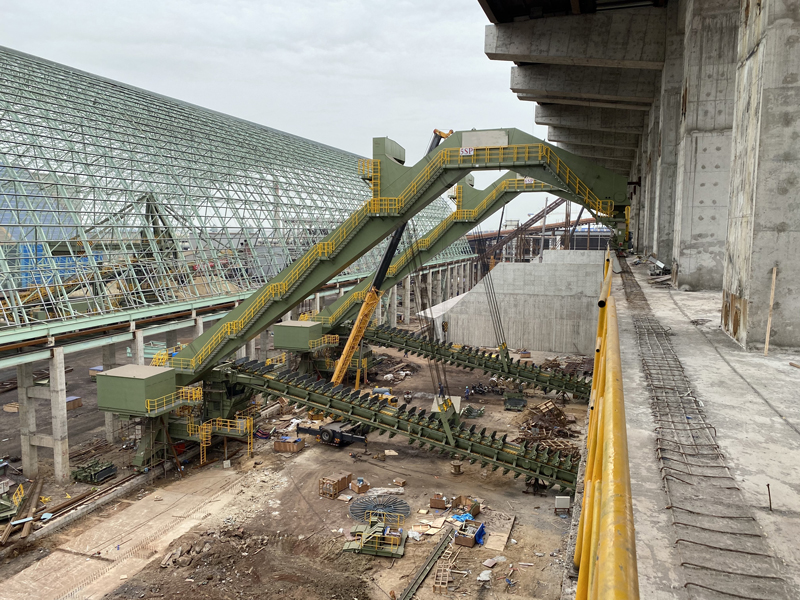Chinese wholesale Apron Feeder Price - High efficiency Mobile Material Surface Feeder – Sino Coalition
Chinese wholesale Apron Feeder Price - High efficiency Mobile Material Surface Feeder – Sino Coalition Detail:
Introduction
Surface Feeder is developed to meet the user’s need for mobile material receiving and anti-leakage. The equipment can reach the capacity up to 1500t/h, max belt width 2400mm, max belt length 50m. According to various materials, max upwards inclination degree is 23°.
In the traditional unloading mode, the dumper is unloaded into the feeding device through the underground funnel, then transferred to the underground belt and then transported to the processing area. Compared with the traditional unloading method, it has the characteristics of no pit, no underground funnel, no high civil construction cost, flexible setting location, integrated whole machine and so on.
From a functional point of view, the equipment can be divided into parallel feeding section and upward feeding section (according to the actual situation upward feeding section can also be arranged in parallel).
Structure
The equipment is composed of driving device, spindle device, tensioning shaft device, chain plate device (including chain plate and tape), chain, frame,baffle plate(sealed cabin), leakage proof device, etc.
Independent feeders are usually equipped with direct motor drive to cooperate with parallel or orthogonal shaft reducers installed on the extended shaft of the head. In special applications, tandem reducers or hydraulic drives can be used.
Operating
Material tilting from the dump truck to plate feeder specific operation is divided into three steps.
1. Firstly, the material is inclined from the dump truck to the plate feeder running forward to the belt conveyor With the operation of the belt conveyor, the materials completely tilt down from the tipper.
2. After the materials are completely tilted, the dump truck leaves, the materials are transferred to the downstream conveying system, and the inlet is empty.
3. After the first dump truck has left, the other one is in place. During this period, the plate feeder has transported the materials to the downstream, and the inlet can accept the new materials.
4. Such operation, cycle and repeat.
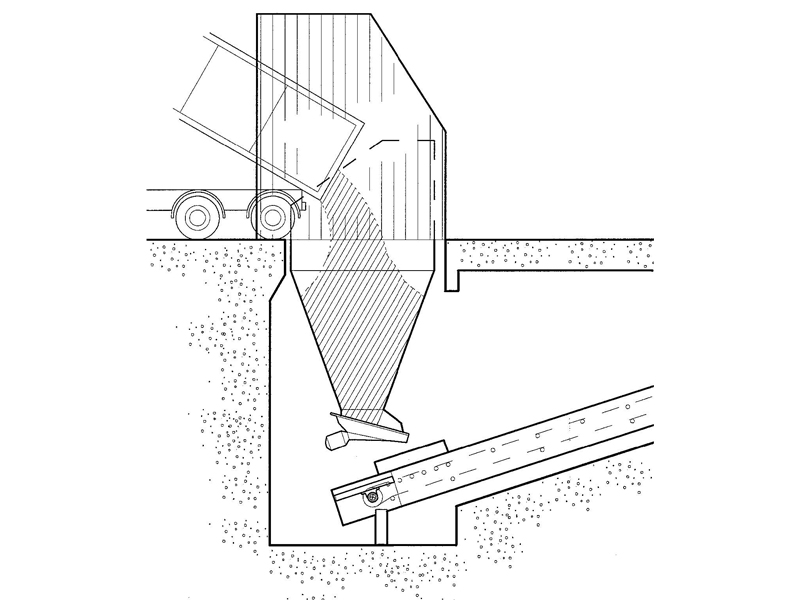
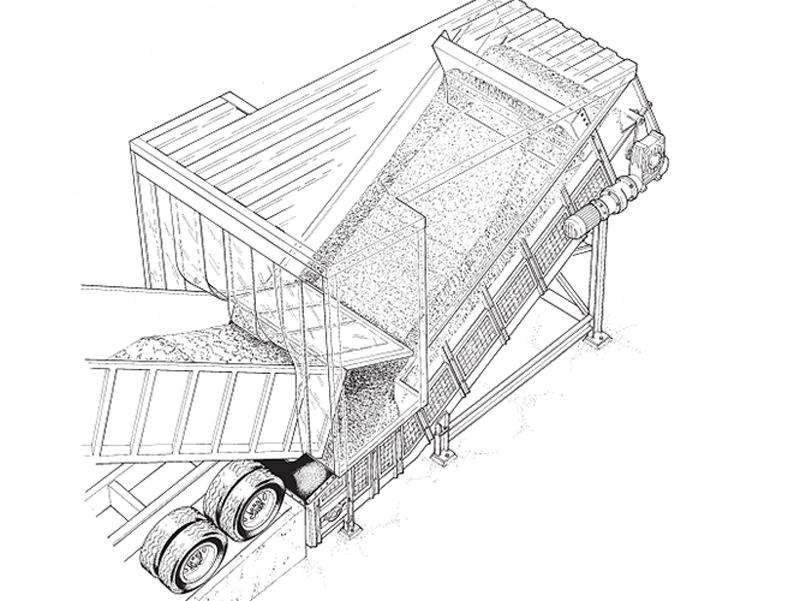
Product detail pictures:
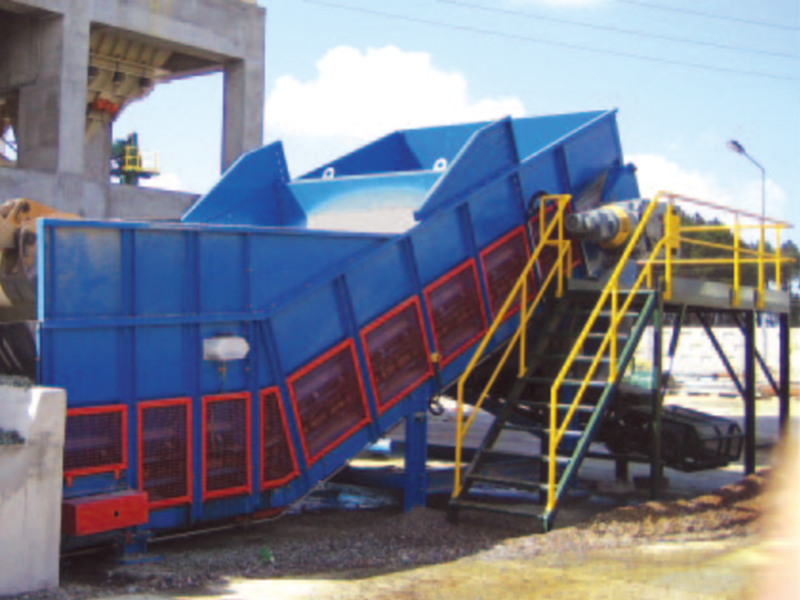

Related Product Guide:
Our eternal pursuits are the attitude of "regard the market, regard the custom, regard the science" and the theory of "quality the basic, belief the very first and management the advanced" for Chinese wholesale Apron Feeder Price - High efficiency Mobile Material Surface Feeder – Sino Coalition , The product will supply to all over the world, such as: America, Kuwait, Munich, Based on our automatic production line, steady material purchase channel and quick subcontract systems have been built in mainland China to meet customer's wider and higher requirement in recent years. We are looking forward to cooperating with more clients worldwide for common development and mutual benefit!Your trust and approval are the best reward for our efforts. Keeping honest, innovative and efficient, we sincerely expect that we can be business partners to create our brilliant future!
The sales manager has a good English level and skilled professional knowledge, we have a good communication. He is a warm and cheerful man, we have a pleasant cooperation and we became very good friends in private.
Products categories
-

Phone
-

E-mail
-

Whatsapp
-

Top


